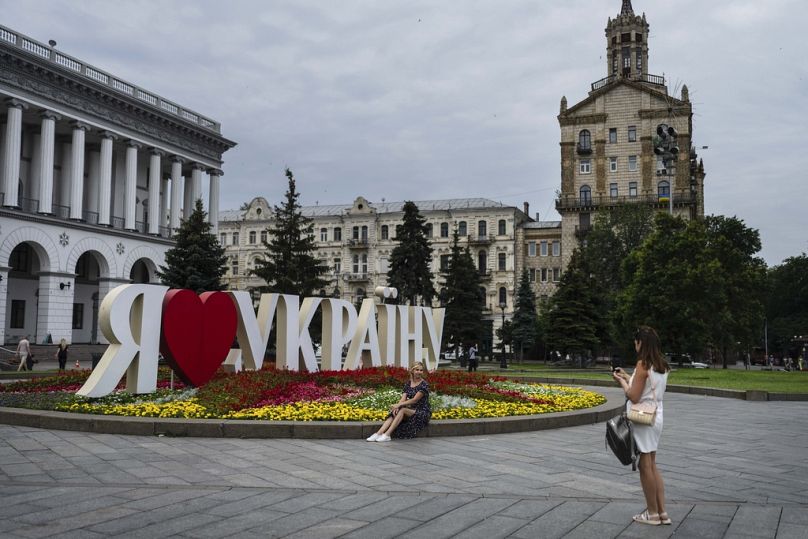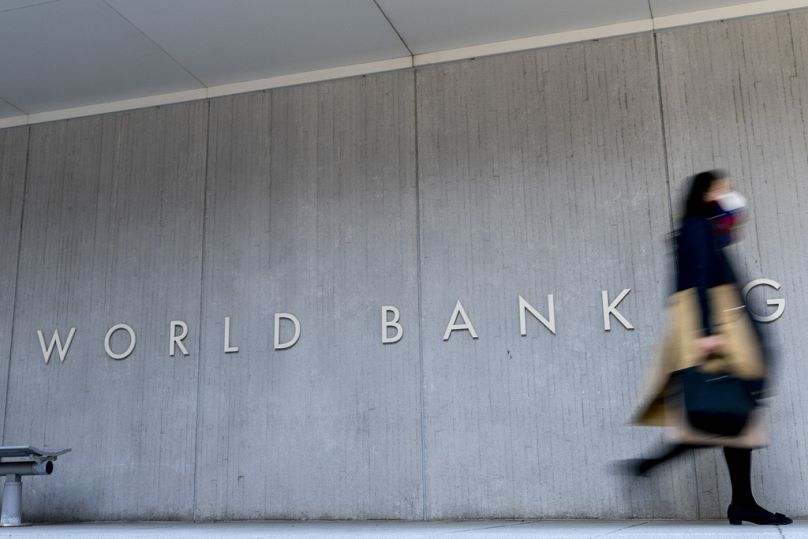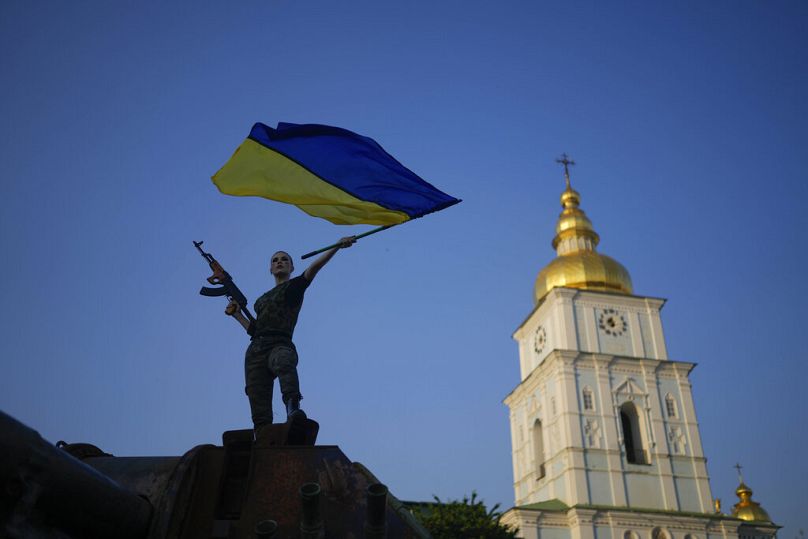If Ukraine never emerged as an economic powerhouse after three decades of faithfully following standard Western recommendations, perhaps it is time to try a different approach, Dmytro Boyarchuk writes.
Ukrainians are fighting tooth and nail against Russian aggression, recognizing the urgent need for a sustainable economy that can withstand the challenges of “perpetual war”.
Vladimir Putin, exploiting the West’s reluctance to bear escalating costs, is sticking to the strategy of wearing down democratic nations by increasing the financial toll of the war and signalling the costs will remain high for “as long as it takes.”
Backed by China, Iran, and North Korea, Putin’s sustained aggression raises two crucial questions: can Ukraine bolster its economy under these conditions? And does Ukraine offer Western partners a plan beyond continual support requests?
What does 'weak' mean for Ukraine's institutions?
Of course, Ukraine cannot bear all of its wartime costs against a superior enemy, with the likes of China aiding the aggressor.
However, unlocking Ukraine’s significant yet untapped economic potential is the key answer to those questions, showing Western partners its capacity for economic resilience and eventually assuming more wartime costs. Economic reform is achievable, even in dire circumstances.
Ukrainian authorities have already adopted various World Bank and International Monetary Fund (IMF) recommendations.
Progress has varied, but by 2021, most suggested Western reforms were in progress, potentially even positioning Ukraine as Europe’s new economic tiger.
And yet, even before the Russian invasion, Ukraine was one of the region’s poorest economies, trailing only Moldova.
What did Ukraine do wrong? The key, oft-overlooked mistake is misinterpreting Ukraine's institutional environment. International financial institutions (IFIs) assert that Ukraine is plagued by a weak rule of law and corruption.
While the rule of law is indeed problematic, the term “weak” implies that it is still functional, but fails in certain instances.
Ukrainian formal institutions are not merely “weak”; they essentially play a secondary role in Ukraine, compared to the so-called customary law that governs society.
It's time to choose the right economic direction
Furthermore, this customary law — made up of informal rules — often significantly diverges from official legislation. Corruption is just one of the many consequences of a defunct rule of law, arising whenever written rules differ from customary law.
This seemingly minor distinction between a “weak” and a “defunct” rule of law represents a critical juncture in choosing the right economic policy for Ukraine’s institutional environment.
The World Bank and the IMF, with good intentions, offered recommendations to Ukrainian authorities that were effective for countries like Poland and the Baltic states in the early 1990s, but they already possessed relatively functional (albeit weak) rule of law institutions.
Even by 2022, Ukraine’s fundamental institutions had not reached the level that Eastern Europe achieved 30 years prior.
The institutional gap between Ukraine and even the structurally weakest countries in Europe, such as Bulgaria, is actually as significant as the divide between Afghanistan and Ukraine.
For Ukraine to reach Bulgaria’s level of institutional development is as complex a challenge as for Afghanistan to reach Ukraine's current state — that’s a big leap.
'Cause I'm the taxman
One unfortunate repercussion of misdiagnosing Ukraine’s institutional context is evident in its tax administration, which remains oppressive.
Tax collection is one of the major barriers to unlocking Ukraine’s economic potential, but IFIs’ approach to Ukrainian taxation mirrors that of Western countries without recognizing key institutional differences.
Ukrainian tax collection relies on principles vastly different from formal laws, using discretionary measures that are effectively informal. Whereas Western democracies build fiscal discipline on the inevitability of punishment for tax evasion, this approach is irrelevant in Ukraine’s environment with a defunct rule of law.
Corporate taxes in Ukraine are effectively collected based on “turnover indications,” a method informally employed by tax authorities.
Their focus is not on a business’s expenses or profits, but rather on its turnover. Fiscal authorities easily assess a company's turnover to determine the percentage that should be taxed.
While Ukrainian tax legislation outlines standard rules familiar in many parts of the world, fiscal authorities are unable to verify incurred costs in practice. This method of tax collection is notably prone to corruption and obviously oppressive to businesses.
Repeating the same mistakes, expecting a different outcome
Acknowledging the dysfunction of Ukraine's rule of law, namely its inability to enforce compliance with written rules, the best practice is to minimize the gap between written and customary law.
The traditional approach — aligning informal behaviours more closely with formal legislation — has consistently failed in Ukraine over the past three decades.
Moreover, there is no evidence that such a conventional strategy is effective in countries with similar foundational challenges.
In Eastern Europe, there are no examples of a successful breakaway from deeply entrenched Soviet patronalism resulting solely from the traditional recommendations of IFIs.
The only example of a successful dismantling of the Soviet-style institutional relationship came in Georgia, which enacted unconventional, innovative reforms. Between 2003 and 2012, Georgia simplified its tax system, pursued radical deregulation, and completely overhauled law enforcement agencies, among other efforts.
Georgia didn’t rely solely on the West, so why should Ukraine?
If Ukraine never emerged as an economic powerhouse after three decades of faithfully following standard Western recommendations, perhaps it is time to try a different approach. Achieving better outcomes by repeating the same errors again is unrealistic.
Time is of the essence. If the World Bank and IMF continue to misdiagnose Ukraine’s institutions, its people will face dire consequences.
Dmytro Boyarchuk serves as Executive Director of CASE Ukraine in Kyiv.
At Euronews, we believe all views matter. Contact us at view@euronews.com to send pitches or submissions and be part of the conversation.














